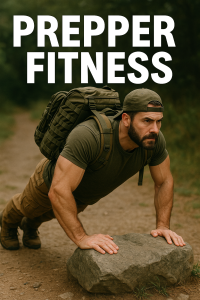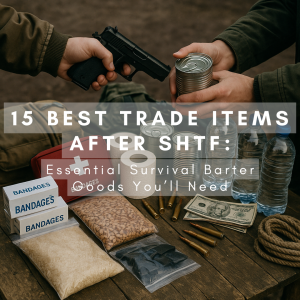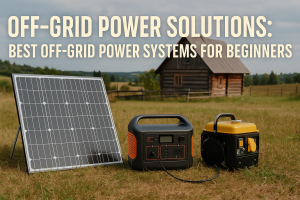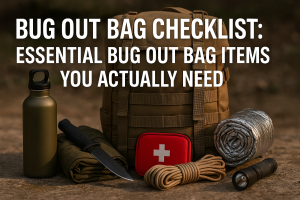In an uncertain world, the importance of preparedness cannot be overstated. Emergencies, disasters, and unforeseen events can strike at any time, leaving individuals and communities vulnerable. Preppers, individuals who proactively prepare for emergencies, have long recognized the value of self-sufficiency and resilience. However, building a community of like-minded preppers can enhance individual preparedness efforts and create a support network for facing challenges together. This article explores the ways in which preppers can meet, organize, and engage in collaborative preparedness activities, fostering a strong and resilient community.
- Finding and Connecting with Other Preppers
Building a community of preppers begins with finding and connecting with like-minded individuals who share a commitment to preparedness. Here are several effective strategies to meet fellow preppers:
- Local Meetup Groups: Utilize online platforms, such as Meetup.com, to find prepper-focused groups in your area. Attend meetings and engage in discussions to connect with individuals who share your interests and goals.
- Social Media and Forums: Join prepper communities on social media platforms like Facebook, Reddit, or dedicated forums. Participate in discussions, share ideas, and establish connections with fellow preppers.
- Workshops and Training Events: Attend workshops, seminars, and training events related to emergency preparedness. These events offer excellent opportunities to meet and network with other preppers who are committed to enhancing their skills and knowledge.
- Local Community Organizations: Get involved in community organizations, such as volunteer firefighting or search and rescue groups. These organizations often attract individuals with a preparedness mindset, providing a chance to connect with potential community members.
- Organizing a Prepper Community
Once you have connected with fellow preppers, it is essential to organize and establish a strong community foundation. Consider the following steps:
- Define Objectives: Clarify the vision and objectives of the prepper community. This could include shared resources, information exchange, skill-building, or mutual assistance during emergencies.
- Establish Communication Channels: Set up dedicated communication channels for the community, such as a private online forum, a secure messaging app, or an email list. Regularly communicate and share updates, tips, and relevant information.
- Collaborative Preparedness Planning: Develop a community-wide preparedness plan that outlines common risks, resources, and strategies for addressing emergencies. Encourage members to contribute their expertise and skills to the planning process.
- Pool Resources: Explore opportunities to pool resources, such as bulk buying essential supplies, sharing tools and equipment, or jointly investing in renewable energy sources. Collective resource management can improve individual preparedness and overall resilience.
- Training and Skill-Sharing: Organize regular training sessions and skill-sharing workshops within the community. Encourage members to teach and learn essential skills like first aid, self-defense, gardening, and food preservation.
- Establish Mutual Support Systems: Create a system for mutual assistance and support during emergencies. This could include identifying individuals with specific skills or resources and establishing protocols for communication and coordination during crises.
- Collaborative Preparedness Activities
A prepper community can engage in various activities that not only enhance individual preparedness but also foster a sense of camaraderie and resilience. Here are some ideas for collaborative preparedness activities:
- Mock Drills and Exercises: Conduct regular mock drills and exercises to simulate emergency situations and test the community’s preparedness. These activities help identify gaps, refine response plans, and build confidence in the community’s ability to handle crises effectively.
- Community Gardening: Start a community garden where members can grow their own food and share knowledge and resources related to sustainable agriculture. This not only enhances self-sufficiency but also promotes a sense of community and well-being.
- Workshops and Training Sessions: Organize workshops and training sessions on various preparedness topics, such as emergency medical care, water purification, self-defense, or renewable energy solutions. Invite experts or community members with relevant knowledge to facilitate these sessions.
- Emergency Response Teams: Establish specialized teams within the community for emergency response roles, such as search and rescue, medical assistance, or communication. Train these teams to ensure they are well-prepared to handle specific scenarios.
- Information Sharing and Education: Foster a culture of continuous learning and information sharing within the community. Encourage members to share articles, videos, books, and other educational resources related to preparedness, ensuring everyone has access to the latest knowledge and best practices.
- Community Events and Gatherings: Organize regular community events, such as potluck dinners, barbecues, or outdoor activities. These events provide opportunities for community members to connect, strengthen relationships, and foster a sense of belonging.
Building a community of preppers is a powerful way to enhance individual preparedness and create a support network during emergencies. By finding like-minded individuals, organizing a community, and engaging in collaborative preparedness activities, preppers can develop strong bonds, share resources and knowledge, and be better prepared for whatever challenges the future may hold. Remember, the strength of a community lies in its collective efforts, and together, preppers can create a resilient and self-sufficient network capable of weathering any storm.





